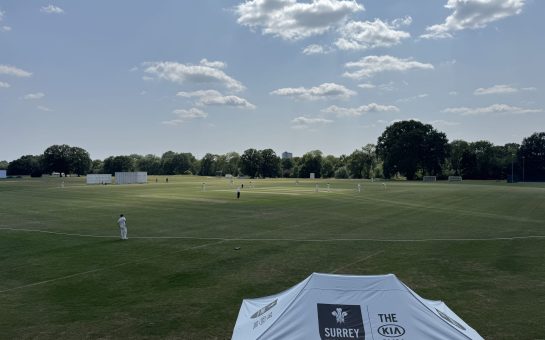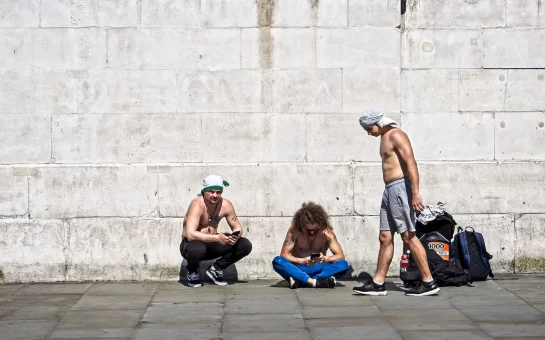The Queen travels to Germany this week to pay a reflective visit to concentration camps to mark the 70th anniversary of their liberation by allied troops.
Concentration camp survivor, Zigi Shipper, shared his dehumanising experiences in Jewish ghettos and at Auschwitz with SW Londoner to reach out to young people with a message about the dangers of intolerance.
Zigi’s first memory as a young teen in Auschwitz-Birkenau was a selection process where German guards separated the strong from the weak.
A particularly cruel fate awaited women carrying babies – Zigi witnessed his first traumatising incident in the death camp.
“The German guards approached them and told them to put the baby down and go to the other side. Can you imagine a mother doing that? Of course not,” he said.
“They tried to rip the child out of their arms. If they didn’t succeed they shot the child.
“I keep asking myself, how can a human being do that during daytime and in the evening sit down with his wife and children, listen to music and eat his meal?
“You would think I am talking about thugs or hooligans. They were doctors, lawyers and accountants.”
The Holocaust erased six million Jewish lives, and the now 85-year-old says he can never pardoned the criminals because ‘only God and the dead can forgive’.
Yet despite the atrocities he witnessed and suffered, he doesn’t believe the remaining living perpetrators should be imprisoned.
“Why should we send a man or woman of 90 years old to a prison? What will it do? It won’t bring back anyone you want,” he said.
“Will he change? The last one got five years but died after a few months. I think he suffered enough just knowing what he did.”
SW Londoner met Zigi at Kingston University where he gave a speech, on behalf of the Holocaust Educational Trust, to inform young people about the devastating results of prejudice.
He described his ‘good’ childhood in Lodz, Poland where he was raised by his grandparents after his parents’ divorce and his mother leaving the family.
Zigi was nine when World War II broke out in 1939 and endured tremendous hardship under the Nazi occupiers who seized Lodz.
He described the humiliations inflicted on the 260,000 Jews living in the city, where soldiers would stop men at random to cut off their beards.
One morning his father told him that he was leaving Poland because he was sure that the Germans would only purge combatant men.
His father had made a tragic mistake, underestimating the extent of Nazis’ ruthlessness. Zigi never saw him again.
He and his grandparents were transferred, with 150,000 others who hadn’t fled, to a ghetto that could only hold 20,000 people.
Running water and sanitation were non-existent and inmates were refused food ration cards unless they worked six days a week for up to 12 hours a day.
The conditions were so appalling that Zigi’s grandfather died.
“People were eating dogs, cats, anything. Children were stealing bread from their parents and vice versa. We were completely dehumanised,” he said.
People died from starvation and disease, women committed suicide after their children died and bodies of babies were an everyday sight.
The relentless horror left the people emotionally mute, unable to respond to the deaths around them, Zigi described people stepping over bodies of children in the streets.
“They didn’t mean anything. All I was thinking was my bowl of soup,” he said.
Zigi’s job at a metal factory kept him alive but in 1942 he was picked for transportation by the SS, on the pretext that they needed workers in Germany.
The 12-year-old was put in a lorry full of babies, children, elderly and disabled people – none of whom looked like potential workers.
He knew something was wrong and immediately jumped off the lorry – he was lucky that no one saw him as he would have been shot.
In 1944 Zigi was taken out of the ghetto and ushered onto cattle trucks crammed alongside countless other desperate souls many of whom died of starvation during the four-day trip.
“All my life something has been bothering me and I feel so ashamed about it. How can a 14-year-old boy hope people should die so he has room to sit down?
“I certainly wasn’t a human being anymore. I hope no one would call me an animal because this would be an insult to animals.”
Finally the train stopped and the 14-year-old read through the slatted side of the truck the word ‘Auschwitz’.
The doors opened, the remaining living people jumped off and he observed the chimneys which made him hope that the camp baked bread.
However Auschwitz-Birkenau’s ghastly reality became apparent once the selection began but Zigi was again ‘lucky’, because he looked capable of working.
The elderly, disabled and children went to the gas chambers where they died in just 20 minutes, in the camp outside life expectancy was around two months.
In contrast to countless other prisoners Zigi didn’t have a number tattooed on his arm, but he did have one written on his pyjamas that still left its indelible mark.
“Many times I forget the PIN number of my credit card but I remember 84303,” he said.
The horror of life in the camp began with the morning count where the prisoners stood outside for hours.
Those too weak to stand were taken to the camp hospital, run by the notorious Dr Josef Mengele who conducted cruel experiments on inmates.
A few weeks after his arrival Zigi was taken to Danzig to work, but the unbearable cold of -20ºC started to make him lose hope.
Eventually he was taken to work on a railway where there were opportunities to steal food that they would eat raw.
“One day some boys stole some tobacco. They SS officers put ropes around their necks and started to read out the reasons of this execution,” he said.
“They couldn’t finish a sentence and those boys jumped themselves to their death – they didn’t want the Germans to do it.”
Allied planes flying over the camp gave prisoners hope that the war was almost over.
“Whenever we saw planes above every camp we were praying that they would start bombing,” Zigi said.
“We didn’t care if they killed some of us. At least they would destroy some of the crematoria and gas chambers.”
Eventually, on May 3 1945, he was liberated by the British army and on seeing one of the tanks he begged the driver for ‘wasser’, it was the first drink of water he’d had in almost a week.
The 15-year-old was free but had typhus, lice and only knew how to lie and steal – nothing like the nine-year-old from Lotz.
“When I woke up the next morning I looked at the bunk and the white sheet was black. When I looked again there wasn’t just dirt but things crawling there,” he said.
“My clothes were saturated with lice. We were so immune to it we didn’t even scratch anymore.”
In 1947 he was transferred to Britain to start his life over but he was alone, as he learned his grandmother died in Czechoslovakia on the same day of the liberation.
He said: “She didn’t even live one day of freedom. I wish I could put my arm around her for at least once and say, ‘Grandma, thank you for bringing me up. Whatever I am, I owe it to you.’”
In an amazing twist of fate a letter arrived asking if he had a burn mark on his left wrist – the letter was from his mother.
Ten months later he went to London and reunited with his mother who he thought was dead.
“I met my mother, we hugged and we cried. My first six months in Britain were hell for the simple reason that I missed my family, and it wasn’t my mother but people who saved my life,” he said.
He later found out that many Auschwitz-Birkenau survivors, who had taken care of him when he was sick during captivity, were living in London and had created a club.
“I went on a Saturday night, knocked on the door, they opened and I said ‘at last I found my family again’ – I never said that when I found my mother,” he said.
His life completely changed as he found his friends and met Jeanette, who he has been married to for 60 years.
His new life officially began in 1956 when his first daughter was born.
“Even liberation didn’t mean this much. A nun said ‘this baby is yours’ and I was choking, I couldn’t stop crying,” he said.
“I went to my wife and told her at last we got something that is ours.”
Zigi has been blessed with two daughters, six grandchildren and a great grandson.
Twenty years ago he went back to Auschwitz-Birkenau with both his daughters in a very emotional trip and found two rooms particularly devastating – one with piles of human hair; he thought that some could have been his.
“The other one was the worst, every time I am in that room I feel like dying. The room has babies’ toys,” he said.
“The first time we went there I hugged my daughters and we all cried because under different circumstances those could have been theirs.”
Zigi insists that other Holocaust victims such as the European Roma, Jehovah witnesses and gay people should be remembered.
He has only one message for young people: “The most important thing is that you must not hate, it will ruin your life.
“We are human beings, that’s all we are. I beg you, do not hate.”
Picture courtesy of Tonje Odegard, with thanks




